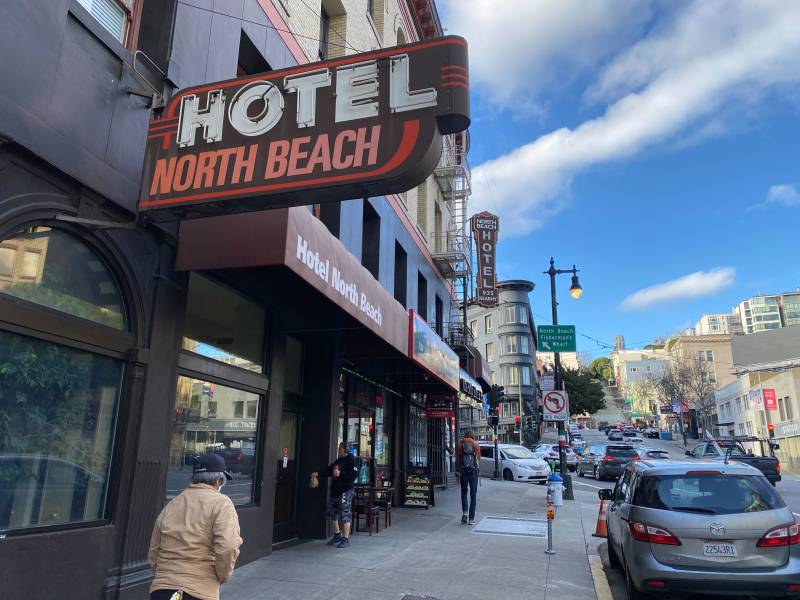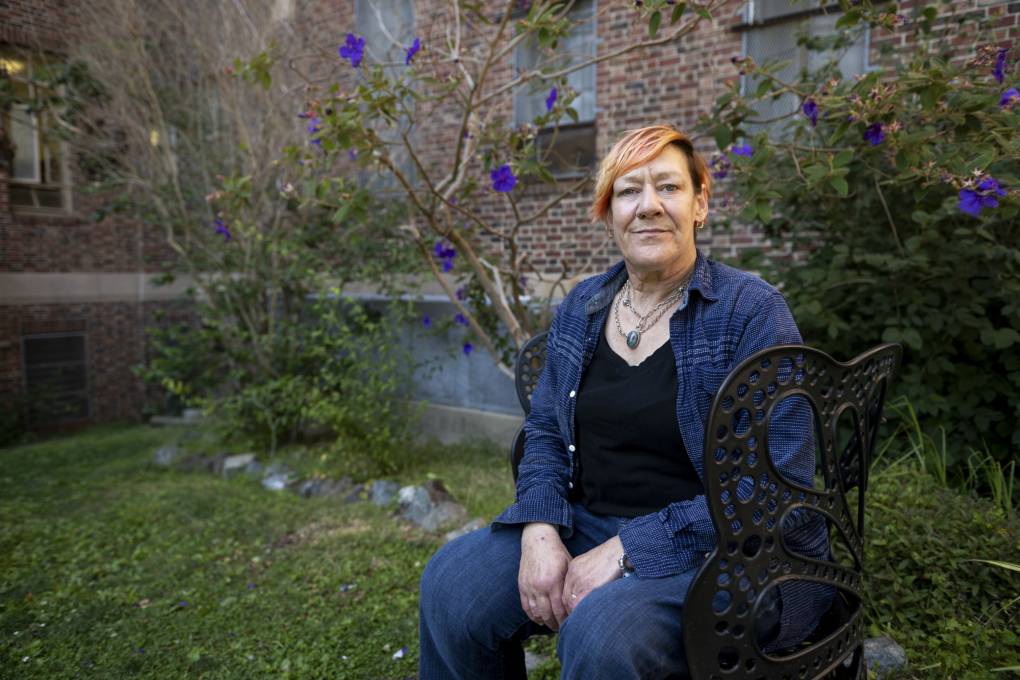A recent survey of 450 Tenderloin Housing Clinic residents found that 71% said they would prefer to live in a sober hotel, according to Randy Shaw, director of the Tenderloin Housing Clinic, who shared the findings at Thursday’s press conference.
“We have had a lot of people tell us this is what they want,” McSpadden said.
But opening up an all-sober housing option within the city’s permanent supportive housing inventory hasn’t been easy.
Fair housing laws prevent local governments from mandating residents to be sober to access public housing — because that could discriminate against people who are in recovery and make it even harder to access shelter.
To get around state law barriers, the sober living program at Hotel North Beach will be paid through city dollars from the general fund, city officials said.
“I thank God that London Breed listened to the community, listened to the people, for having more transitional housing and helping people get to permanent housing,” said Cedric Akbar, a recovery advocate and executive director of Positive Directions Equals Changes. “One size does not fit all.”
San Francisco recently reopened 70 units of permanent supportive housing on Treasure Island for people in recovery who had just completed a residential drug treatment program. Residents, however, can’t stay there long term and must leave between six months to two years.
One resident at the Treasure Island site named Craig H. told KQED that having a like-minded community has supported his sobriety. But, he said it can be difficult to maintain sobriety after exiting transitional housing programs.
“San Francisco can help those of us that are getting ready to go back into the world. We need some housing,” Craig H. said. “We don’t need to be thrown back on 16th and Mission. We don’t need just SROs in the Tenderloin. We need a shot at it.”
At North Beach Hotel, the hope is to create more spaces for people who are at a stage of their recovery where a sober community could help.
Case managers and social workers at the hotel will also support residents if they relapse.

